How The ‘Hackers’ Techno-Forward Soundtrack Captured The Future
“This would be the next generation’s rock’n’roll, but what would be its soundtrack?” says ‘Hackers’ director Iain Softley.
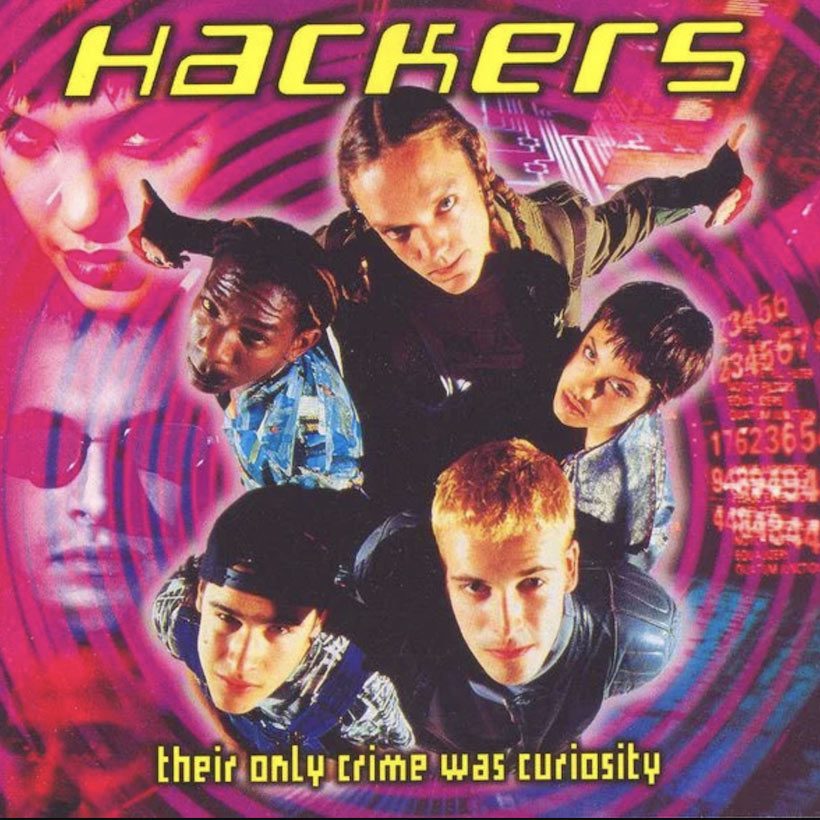
Reflecting back on Hackers a generation later, it’s fascinating to look back at the film – and its electronica-infused soundtrack – as an audio-visual time capsule. While the 1995 cyber cult-classic reflected the public’s curiosities and fears that revolved around the emerging technology of the internet, it also showcased a burgeoning genre. Director Iain Softley’s purposeful music choices spotlighted a variety of the scene’s emerging stars – including The Prodigy, Orbital, and Underworld – and introduced many viewers to a bold, new sound.
It’s impossible to revisit Hackers properly, though, without context. When Hackers was released to movie theaters in the fall of 1995, the worldwide web, as it was known then, was still a thing of mystery to much of the global population. Those of us in the U.S. who were lucky enough to have internet access generally knew it through the safe confines of AOL, or, America Online. The portal, entered using “dial-up” via the phone lines, hosted three million customers in 1995, and offered a user-friendly way to send emails, connect with others through chat rooms, and, of course, “surf the web.”
An otherworldly look
Operating on the other end of the spectrum is the film’s hero, Dade “Zero Cool/Crash Override” Murphy, played by Jonny Lee Miller. While the digital prodigy is a master hacker, his actions are closer to those of a merry prankster than of a villain. When the high schooler relocates to New York City, he soon meets a group of like-minded cyber-punk friends, who unwittingly uncover – and are framed for – the work of an evil hacker (“The Plague,” played by Fisher Stevens). Together, the friends work to clear their names, and right the wrongs of The Plague’s pilfering code.
While the film has an otherworldly look about it, it still echoes many of the trends of the 90s. The inspired fashions of the cast fall somewhere between rave-wear, steampunk, and kink – a tangle of buckles, multipurpose sunglasses, and platform boots. Though the film was released at a time when computer nerds were overwhelmingly portrayed as, well, nerds, the cyber-wiz-kids in Hackers are edgy, digital ravers who attend underground parties and skate their way around futuristic arcades. It also doesn’t hurt that they are played by a cast of up-and-coming Hollywood stars, including Miller, Matthew Lillard, and Angelina Jolie – in her first, major leading role.
Pulsating soundtrack of electronica
Driving the Jolt cola-fuelled actions of the characters is a highly effective, pulsating soundtrack of electronica, which bolsters the trippy, fast-paced visuals of every scene.
For the film’s kinetic score, Softley recruited Simon Boswell – known for combining electronic elements with orchestral arrangements – and longtime Pink Floyd collaborator, Guy Pratt. Additionally, Softley culled music from some of the most exciting artists coming out of the scene, utilizing a broad range of styles – from the hardcore techno of The Prodigy’s “Voodoo People” and the ambient house of Orbital’s “Halcyon,” to the electropunk of Leftfield and John Lydon’s “Open Up.”
At the onset, the director felt that the use of electronic styles made the most sense for a film about the budding digital age. While electronic music was still widely underground in America at the time, the scene was much more robust in Softley’s native London.
“The music that was emerging [was] really in parallel with Britpop at that time. It was just as representative of what was happening in London and the UK,” Softley told uDiscover. “What I particularly liked was the ambient – almost trip-hop – that really was appropriate to what I was trying to do in terms of the world that [the hackers] inhabited themselves.”
“I was struck by how [the cyber world] was another counterculture,” continued Softley. “I saw music as something that defined counterculture. Not only that, I saw it as a way of just helping to create this world that was, in many ways, parallel to the psychedelic world.” Taking that concept one step further, explained Softley, “we coined this phrase ‘cyberdelic’ and named the club in the film, Cyberdelia. So to me, the link between the counterculture element in the film and music was absolutely essential.”
A musical revolution
Softley – whose 1994 directorial debut, Backbeat, chronicled the early days of The Beatles – also viewed Hackers as a film about a band of sorts. In his liner notes for the new, 25th anniversary edition of the soundtrack, Softley thanked the stars of the film, whom he lovingly referred to as his “cyber-punk rock band.”
“This was a group that had rivalries and loyalties, and they fell out and they got back together again,” Softley explained to uDiscover. To him, the underground world of the hackers was the “new rock and roll.” Mirroring a band with their specialized instruments, each of the hackers had their own customized laptop computers – complete with guitar straps for easy transport around New York.
Following the release of the first Hackers soundtrack – which also featured the iconic DJ Carl Cox, the Stereo MCs, Ramshackle, Machines of Loving Grace, Josh Abrahams, and Squeeze – were two additional volumes, released in 1997 and 1999. These albums primarily compiled music that was inspired by Hackers, including Moby’s debut single – 1991’s “Go” – a remix of David Bowie’s 1997 hit single, “Little Wonder,” and several selections by the Hamburg-based producer duo, Brooklyn Bounce.
Although Hackers spawned three albums, several of the film’s musical selections remained unreleased – until now. The definitive, 25th-anniversary reissue of the soundtrack unearths such sonic gems as “Hackers Suite” from Simon Boswell, and two instrumentals from Guy Pratt: “One Combination” and “Grand Central Station,” which features the unmistakable guitar stylings of Pink Floyd’s David Gilmour. Though Gilmour’s contributions have long been speculated, they were only confirmed earlier this year.
The next generation’s rock’n’roll
Softley’s music-forward vision for the film was certainly innovative, but on a broader level, the director created a platform for a genre that was widely underground at the time, introducing viewers – particularly those in America – to electronic music’s most exciting, up-and-coming acts.
“It wasn’t really music that was being used at that time in other films,” explains Softley. “So I always thought that it would be a great distinguishing quality of Hackers. But I think it was just too soon, in a way. People got into that music a bit later, which, paradoxically, I think, has been a big reason why…the film is very enduring.”
While Softley might have been ahead of his time, his instincts proved to be quite prophetic. In his liner notes, he recalls, “What I saw in the Hackers script was the opportunity not to look back, as I had done with Backbeat, but to look ahead and to try to anticipate what the next cultural move forward would be. I was convinced that what many people considered at the time to be the obsession of a geeky minority would become mainstream culture. This would be the next generation’s rock’n’roll, but what would be its soundtrack?”
Hackers (Original Motion Picture Soundtrack) can be bought here.






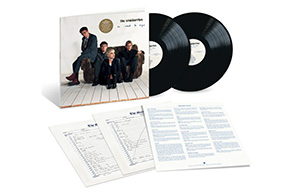

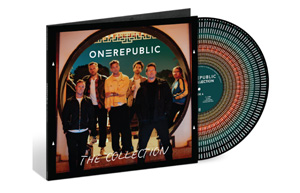



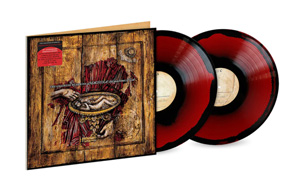
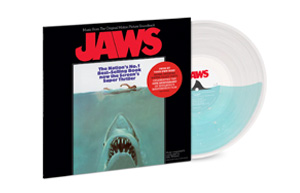
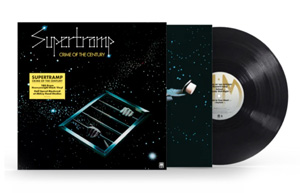
elektrolad
October 5, 2020 at 10:49 pm
Since there were three volumes released it would have been nice to have as many tracks from 3 cds and missing tracks compiled to the reissued 2-disc set. Maybe it does. I don’t feel like visiting Discogs to check tracklistings of all the variations.
Honestly, I can’t see any reason me for buying this. Except for the soundtrack/Incidental music so many of these songs appeared on countless compilations at the time. I know, I have too many of them. In the mid to late nineties electronic music was mostly unheard by US audiences. Mainstream America was not at all bothered by guitar noise in any form played by poorly dressed, unwashed musicians, but did not want any part of sampler-wielding hairstyles behind a bank of keyboards. They wanted to see a band. Rock and roll and all that stuff.
I was on the hairstyles bus.
After the synthesizer/drum machine-based music of the early 80s got going I thought, ok, the future was here. Electro was born and rap was electric. R&B bands did suffer. Kind of. Many paired back their 10-12 member lineups to the core members for sleeker, updated versions and electro-funk was born. (Thankfully, many kept their bass guitar) The 808 and DMX, easily the most identifiable and best kick drum ever!, were now on drums and percussion while the Computer invented by Roger Linn was the official drum machine of the 1980s. And perhaps Prince. The Moog providing the bassline for the backbone of funk was set aside. That was ok by me, but a lot of musicians were out of a job.
Digital was now the key word.
The Fairlight, Emulator, Synclavier and PPG Wave were on the wishlist of many while the DX7, Jupiter-8, D-50 and soooo many more were used and over-used because many never bothered to venture into the make-your-own-unique-sound area and stuck with the presets.
Dance music got an overhaul as well. Gone were the string sections and, well, everything else that made disco stale. Drum programming made your song stand out until others used your pattern, samplers added effects and excitement until others used your sounds. Famous remixers sterilized your work with a homogeneous beat and breaks so you knew where to mix in and mix out. Often just by looking at the record.
Beat mixing was no longer an art. You now needed two things, know the key and how to count to 16. Turntables comparable in quality to the Legendary 1200s were within financial reach to many and you could still buy a 12″ for $4.98. By the end of the decade dance music was about as interesting as it was ten years prior. Clubs were now mega-clubs with multiple floors catering to multiple genres. Even the after hours dive was no longer a secret.
I can kinda see how the upcoming grudge music scene could take over.
Kids going to all-ages shows. Bands looking for an audience playing for beer money. Pre-internet and not yet on mainstream MTV. It was word of mouth I guess.
Not for me. I was still hanging onto whatever electronic music I could get. But then it was over. Electronic music was poison.
Some of my bands tried to adapt and failed. They were older now and just…old.
I detached from just about everything. Changes in life. Changes in location. Started listening to the music that inspired my music.
Thank you David Bowie. And the Bowie Girls.
I was beginning to see how that music worked and how it could become synthesizer music. Seems easy enough now, but you really had to be there. I wasn’t. I am a loner.
I found Orbital. The Brown album. Shades of Kraftwerk. Two brothers in a room with some gear. Really brothers.
By then some of that Euro-disco was bubbling through the charts here.
Electronic music in the rest of the world was still popular. Mutating. Or was it just dance music?
When I went music shopping in a store I still looked through the bins of my old music.
What’s this? Octopus? Human League? Couldn’t get home fast enough.
All synthesizer! No guitars thank you.
The prophecy was true.
This brings me back to the Hackers-era soundtrack musicians.
MTV had Amp. There’s my hour of music videos for the week.
So I probably bought all of what was available.
Still do, but not so much is interesting.
I don’t want what sounds like whatever band. I want my band. And more.
In the last 20+ years I’ve continued to fill the house with many more thousands of records and cds. And misc formats.
Life doesn’t change much. Location is stagnant.
Sometimes I’ll see one of my bands. Sometimes it is still exciting. Often sad. Please retire.
Electronica is the worst name for a musical genre…ever!